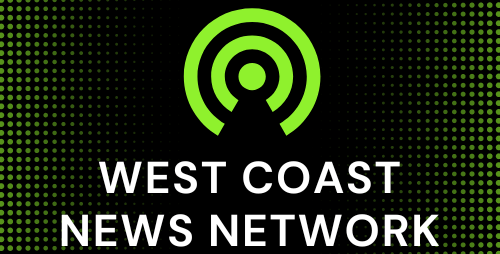
If you want your website to rank well in search engines, on-page optimization is essential. On-page optimization is the process of optimizing individual web pages in order to rank higher and earn more relevant traffic in search engines. It’s important to note that on-page optimization is just one part of a successful SEO strategy. Off-page optimization, such as link building and social media engagement, is also important. However, if you want your website to rank well, on-page optimization is a good place to start.
On-page optimization is an important part of any website’s marketing strategy. It helps search engines understand your website better, which can lead to higher rankings. Good on-page optimization can also help make your website more user-friendly, leading to higher levels of engagement from visitors. Additionally, on-page optimization can help you save money on paid advertising by making your site more effective at converting visitors into leads or customers.
There are a number of factors that go into on-page optimization, including the following:
-Title tags and meta descriptions: These are the first things that a search engine sees. They should be clear, concise, and informative. The title tag should include your website’s name and a keyword or phrase related to your business. The meta description can be longer and include more information about what your site has to offer visitors.
-Images: Your website may have several images that need to be optimized for visibility and effectiveness. Make sure you use keywords in titles and captions, as well as in file names and alt text. For example, if you’re featuring an image of a product, include “Product photo” in the title tag so browsers will display it properly when they search for related terms. Use keywords in body copy too—for example, when describing features or benefits of a product.
-Webpagespeed Insights: Google provides webmasters with tools to measure their websites’ performance using PageSpeed Insights (formerly known as Pingdom). This tool is available free of charge on Google Analytics dashboard (under Tools → Web Analysis → Overview). Pages with high scores indicate better overall performance on the part of the website owner/operator. Scores over 80% are usually good indicators that pages load quickly enough for users who are expecting them to load quickly (IE 8 seconds or less), which means they have taken steps such as minifying CSS & JS files & optimizing images for size/quality. Keep your site score under 50% if possible–this will help improve your rankings even further!
On Page Optimization Tips And Tricks
Contents
There are a variety of ways that you can optimize your website to improve its ranking in search engine results pages (SERPs). This will help to increase the visibility and potential reach of your website. It can also help to draw attention to specific products or services that you offer, as well as enhancing the usability and appeal of your website.
If you’re looking for more concrete tips on how to optimize your website, we’ve compiled a list of our top On Page Optimization Tips and Tricks. These include things like optimizing titles, descriptions, images, and keywords. If you’re interested in learning more about optimizing your website for better rankings, be sure to check out our blog!
How To Optimize Your Webpages For Search Engines
Optimizing your webpages for search engines is an important step that can help improve your website’s visibility and ranking. There are a number of reasons why optimizing your pages for search engines is important, and the benefits can be significant.
First, optimizing your pages can help improve your website’s ranking in search engine results pages (SERPs). This means that your website will be more likely to appear first when people conduct searches on relevant keywords. In addition, higher rankings mean more traffic and better conversion rates.
Second, optimized pages are easier for humans to understand. This helps increase the likelihood that people will click through to find out more about your content – whether that’s because they are looking for information on a specific topic or because they are considering making a purchase.
Third, well-optimized pages typically load faster in browsers than unoptimized pages. This makes them more accessible and reduces the amount of time that visitors need to spend waiting for content to load.
Finally, optimization can also lead to increased brand awareness and strengthened customer relationships. By creating valuable content that is easy to find and navigate, you’re increasing the chances that potential customers will take action – such as signing up for email updates or visiting again later in the month/year.
The Benefits Of Optimizing Your Website
Website optimization is a critical part of a business’s marketing strategy. It can help to increase traffic, optimize SEO rankings, and engage more visitors. In addition, website optimization can lead to lower bounce rates and increased customer conversion rates.
There are many different ways that website optimization can be effective. One way is to improve the speed of your website. Faster websites are easier to browse and interact with, which leads to increased user engagement and conversion rates. Additionally, faster websites tend to have higher search engine ranking positions. This means that they are more likely to be found by potential customers online.
Another way that website optimization can be beneficial is in terms of traffic growth. Improved SEO rankings will attract targeted traffic from search engines, which in turn will boost your web presence and lead to an increase in overall visitor numbers. Additionally, better SEO results in increased visibility for your site on social media platforms – increasing the chances of reaching new people who could be interested in what you have to offer.
Finally, it’s also important to consider how website optimization affects customer retention rates. In today’s competitive marketplace, every visitor counts! Well-optimized websites ensure that visitors stay longer on your site – leading them towards making a purchase or signing up for your email list as a result (both of which generate revenue). As you can see then, optimizing your website is definitely worth considering if you want success in the online world!
On Page Optimization Tools And Resources
When it comes to optimizing a website for search engine ranking, there are a number of different tools and resources that can be used. In this section, we will discuss some of the most commonly used tools and resources, including Google’s Webmaster Guidelines, Screaming Frog, MozBar, and Google Analytics. We will also provide tips on how to use these tools properly in order to achieve the best results.
Google’s Webmaster Guidelines are a set of recommendations that website owners can use to improve their website’s search engine ranking. Google provides tips on how to implement many of the guidelines in its Webmaster Guidelines, such as using correct title tags and meta descriptions, optimizing images, and configuring your site for mobile devices. Screaming Frog is a free tool that allows you to analyse your website’s pages for errors and potential improvements. MozBar is a paid tool that allows you to conduct deeper analysis of your website’s performance and SEO metrics. Google Analytics is a free tool that allows you to see how users are interacting with your website, including information about pageviews, bounce rates, and conversions.
There are many different tools and resources that can be used when it comes to optimizing a website for search engine ranking. In this section, we will discuss some of the most commonly used tools and resources, including Google’s Webmaster Guidelines, Screaming Frog, MozBar, and Google Analytics. We will also provide tips on how to use these tools properly in order to achieve the best results.
Common On-Page Optimization Mistakes
One of the most common mistakes that website owners make when optimizing their pages is using the wrong keyword density. Too often, website owners will try to use too many keywords on their page, which can result in a cluttered and unreadable page. In addition, it’s important to remember that not all keywords are created equal – some keywords are better for appearing on the front-end of your website, while other keywords may be better for appearing in the back-end of your website.
Another common mistake is not using keywords in the right places on a page. For example, many webmasters will place their main keyword near the top of their page, but they’ll also include unrelated words and phrases that are likely to get searched for but don’t have any relation to their main keyword. This can lead to lost traffic and wasted time for webmasters who try to optimize their pages this way.
Finally, it’s important to remember that you can’t rely solely on search engine optimization (SEO) when it comes to optimizing your pages – you need to make use of all available resources including LSI (Latent Semantic Indexing) and synonyms. By including these types of optimization techniques in your overall strategy, you can increase the chances that people will find your webpage when they search for what you’re targeting.
How To Troubleshoot On-Page Optimization Issues
When it comes to page optimization, there are a few things that you can do to help improve your website’s performance. In this section, we will be discussing some of the most common issues and how to troubleshoot them.
To start off, it is important to clear your cache and cookies. This will help to remove any temporary files that may be slowing down your website. Additionally, broken links can often be fixed by simply pointing the link address in your browser directly to the page instead of using an URL shortener or third-party link hosting service. Lastly, if your website is not loading correctly, there are a few things that you can do to try and fix the issue. For example, you can try refreshing your browser window or clearing your cache and cookies again. If these simple steps do not work then please reach out for assistance from our team!
Optimizing Your Website For Mobile
Optimizing your website for mobile devices can be a challenge, but it’s worth it to make sure that as many people as possible have access to your site. There are a few key things to keep in mind when optimizing your site for mobiles:
– Make sure your design is responsive – this means that the layout and graphics will adjust themselves automatically to look good on any size screen.
– Use large fonts and buttons that are easy to see.
– Eliminate popups and other intrusive elements that might block content from being seen on small screens.
– Consider the user experience – how easy is it for someone to find what they’re looking for? Can they easily navigate from one page to another?
There are a few other things you can do to improve the mobile experience on your site. For example, consider loading content quickly so that users don’t have to wait long for pages to load. And make sure the text is easy to read on small screens – use smaller fonts and fewer words per line. Finally, be sure to test your site on mobile devices before you go live with it – there’s no point in launching a website that looks great but doesn’t work well when users try to use it.
To Sum Up
On-page optimization is a crucial part of any website’s marketing strategy. It helps search engines understand your website better, which can lead to higher rankings. Good on-page optimization can also help make your website more user-friendly, leading to higher levels of engagement from visitors. Additionally, on-page optimization can help you save money on paid advertising by making your site more effective at converting visitors into leads or customers. If you want to improve your website’s ranking in search engines, start with on-page optimization. By following the tips and tricks in this blog post, you can optimize your website for better SERP results, increased traffic, and improved user engagement.





More Stories